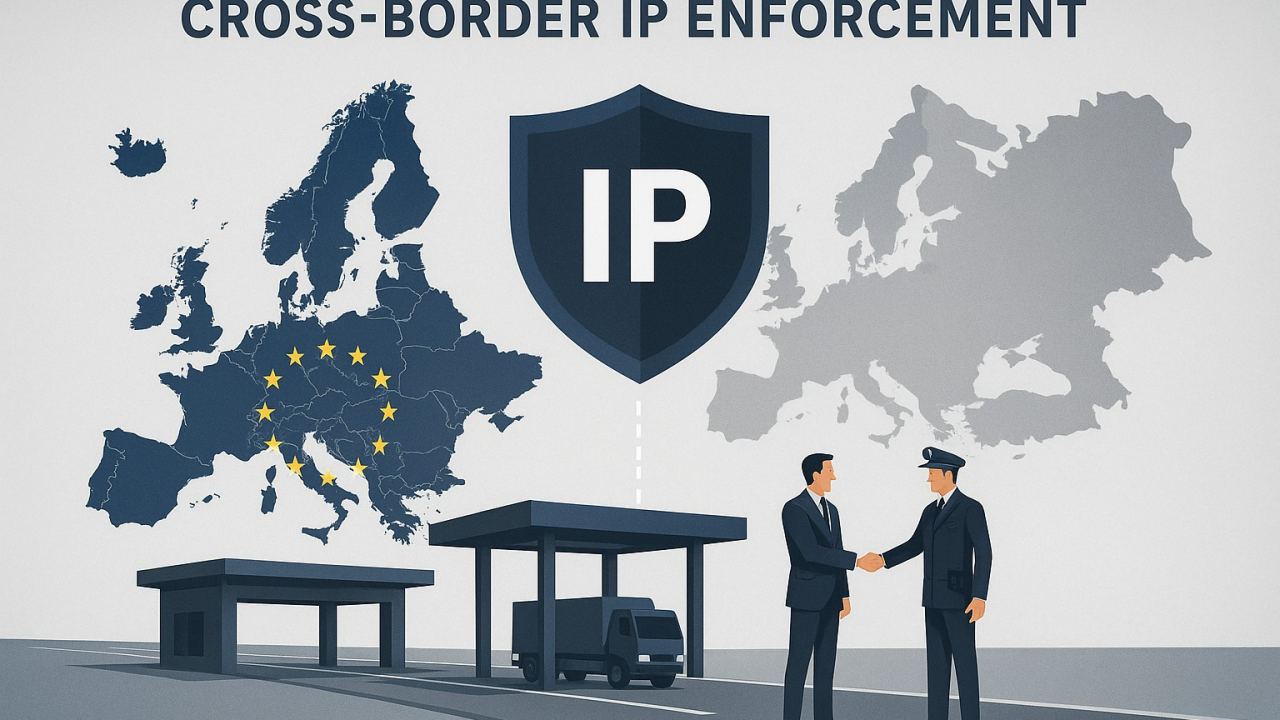Licensing Intellectual Property Internationally: A Comprehensive Guide
In an increasingly globalized market, licensing intellectual property (IP) internationally has become a strategic tool for businesses looking to expand their reach and increase profitability. However, with these opportunities come inherent legal complexities and heightened risks. Licensed IP agreements must be crafted with meticulous attention to detail, ensuring clear definition of scope, territory, duration, and royalty payments, while complying with the laws of relevant jurisdictions.
This article aims to provide a thorough exploration of licensing intellectual property internationally, highlighting key considerations for companies aiming to protect their rights and maximize benefits in cross-border deals. With insights drawn from industry experts and legal precedents, readers will gain practical guidance on structuring and negotiating IP license agreements that span multiple countries.
Understanding Intellectual Property Licensing
Intellectual property licensing is a contractual arrangement where the IP owner (licensor) grants permission to another party (licensee) to use, manufacture, or sell products or services derived from protected IP in exchange for agreed compensation, generally royalties. Licensing can apply to patents, trademarks, copyrights, trade secrets, and other forms of IP.
International licensing permits businesses to access new markets without bearing the full cost of establishing a physical presence abroad. By partnering with local licensees familiar with their regional markets and regulations, licensors can effectively leverage their IP assets while sharing risks and responsibilities.
Key Elements of an International IP License Agreement
Drafting a robust international IP license agreement involves precise and comprehensive terms. The following elements are essential to protect the interests of both licensors and licensees:
- Scope of License: Clearly define the rights granted, including what is being licensed (e.g., technology, brand, designs) and any limitations.
- Territory: Specify the countries or regions where the licensee is authorized to exploit the IP. This prevents conflicts and unauthorized use outside approved areas.
- Duration: Set the term of the license, including commencement and termination conditions. This also includes renewal processes where applicable.
- Royalty Structure: Detail how royalties are calculated and paid, whether as fixed fees, percentage of sales, milestones, or a hybrid.
- Quality Control and Performance Standards: Establish requirements ensuring the licensee maintains prescribed quality levels and meets performance benchmarks.
- Confidentiality: Protect sensitive information exchanged during the partnership.
- Dispute Resolution: Agree on mechanisms such as arbitration or litigation venues, governing law, and languages.
Legal Challenges in Cross-Border Licensing
Licensing intellectual property internationally introduces complexities due to varying legal systems, enforcement standards, and cultural practices. Some notable challenges include:
- Divergent IP Laws: Countries have different laws regarding registration, protection scope, and remedies for IP infringement. Understanding these differences is critical.
- Enforcement Difficulties: Enforcing IP rights abroad might be difficult due to legal inefficiencies or corruption in some jurisdictions.
- Taxation and Transfer Pricing: Cross-border royalties attract scrutiny from tax authorities. Proper structuring is necessary to avoid double taxation and comply with transfer pricing regulations.
- Currency Fluctuations: Volatility in exchange rates can affect royalty payments, necessitating clauses addressing currency risk.
- Import/Export Restrictions: Certain technologies or products may be subject to trade restrictions or require government approvals.
Best Practices for Licensing IP Internationally
To mitigate risks and optimize the value of international IP licensing, companies should consider the following best practices:
- Conduct thorough due diligence on potential licensees to assess their reputation, financial stability, and market capabilities.
- Seek professional legal advice with expertise in cross-border IP transactions and the specific jurisdictions involved.
- Draft detailed agreements with unambiguous clauses, clearly setting forth responsibilities, rights, and remedies.
- Include robust monitoring and auditing mechanisms to track compliance and usage of licensed IP.
- Incorporate flexibility in agreements to address changes in laws, markets, or business strategies.
- Plan for dispute resolution through internationally recognized arbitration bodies where possible.
The Role of Royalties in International IP Licensing
Royalties represent the financial consideration paid by the licensee to the licensor for the right to use the intellectual property. Establishing a fair and sustainable royalty scheme is crucial for maintaining mutually beneficial relationships.
Royalty calculation methods vary and can include:
- Fixed fees payable at regular intervals regardless of sales volume.
- A percentage of net sales or revenues generated from products using the licensed IP.
- Milestone payments triggered upon achieving specific commercial or technical goals.
- Hybrid models combining fixed fees and variable royalties.
When licensing internationally, additional factors affect royalties, such as currency exchange risks, taxation differences, and local market conditions. Agreements should clearly specify payment currency, adjust for inflation or currency fluctuations, and address withholding tax obligations.
Ensuring Compliance with Local and International Laws
Cross-border intellectual property licensing necessitates compliance with multiple legal frameworks simultaneously. Key considerations include:
- Understanding the domestic IP laws of both the licensor’s and licensee’s countries, including registration requirements, enforcement procedures, and infringement penalties.
- Adhering to international treaties and conventions such as the Agreement on Trade-Related Aspects of Intellectual Property Rights (TRIPS), the Paris Convention, and the Madrid Protocol.
- Observing anti-bribery and anti-corruption regulations to avoid legal and reputational risks.
- Complying with export control laws and sanctions which may restrict certain technologies or information transfers.
The complexity of international IP licensing underscores the importance of engaging qualified legal professionals familiar with the particular nuances of involved jurisdictions to ensure all legal obligations are met.
Monitoring and Enforcement of International IP Licenses
Continuous monitoring enables licensors to ensure compliance with the license terms and to detect unauthorized activities. Enforcement strategies may include:
- Regular audits and reporting requirements embedded in agreements.
- Use of technological solutions such as digital rights management (DRM) to control IP usage.
- Legal actions initiated in the agreed jurisdictions in cases of infringement or breach.
- Negotiations and settlements to resolve disputes amicably where possible.
Licensors should also invest in educating their licensees about IP protection’s importance and contractual obligations to foster long-term cooperation and trust.
Case Studies: Successful International Licensing Agreements
Examining real-world examples illustrates best practices and lessons learned. For instance, a European software firm licensing its proprietary technology to multiple Asian markets structured agreements with localized provisions, enabling adaptation to specific regulations, while maintaining centralized quality control and clear royalty terms. This approach resulted in significant revenue growth and minimal disputes.
Another example involves a US-based fashion brand licensing its trademarks in South America, carefully defining territorial rights and rigorous brand standards. The contract included detailed dispute resolution mechanisms and performance benchmarks, facilitating smooth market entry and robust IP protection.
Common Pitfalls to Avoid in International IP Licensing
- Vague or overly broad license terms that create ambiguity and disputes.
- Ignoring differences in IP law and enforcement practices between countries.
- Failing to include adequate quality control provisions leading to brand dilution.
- Neglecting tax implications and currency risks associated with cross-border payments.
- Underestimating the importance of choosing the right dispute resolution forum.
Engaging Legal Expertise for International Licensing Deals
Given the intricate and high-stakes nature of cross-border IP licensing, securing specialized legal assistance is essential. Experienced attorneys can assist by:
- Conducting due diligence to evaluate licensing risks and opportunities.
- Drafting clear, enforceable license agreements tailored to involved jurisdictions.
- Advising on compliance with local and international IP laws, tax regulations, and trade controls.
- Helping negotiate terms that protect client interests and ensure operational flexibility.
- Assisting with enforcement strategies and dispute resolution processes when issues arise.
For companies seeking to navigate the complexities of international IP licensing successfully, consulting legal professionals with global experience is a prudent investment.
Licensing intellectual property internationally presents lucrative opportunities for businesses to expand their footprint and increase revenues. However, it requires careful planning, precise contractual definitions, and diligent management to mitigate the associated legal risks. Understanding jurisdictional differences, crafting comprehensive agreements, and ensuring compliance with both local and international laws are vital to success. Engaging specialized legal counsel enhances the likelihood of favorable outcomes, protects valuable IP assets, and fosters sustainable business relationships across borders.
Legal Marketplace Consultant — A trusted legal partner specializing in comprehensive international intellectual property licensing solutions. We assist businesses in navigating complex cross-border IP laws to maximize the value of their intangible assets while minimizing risks.































